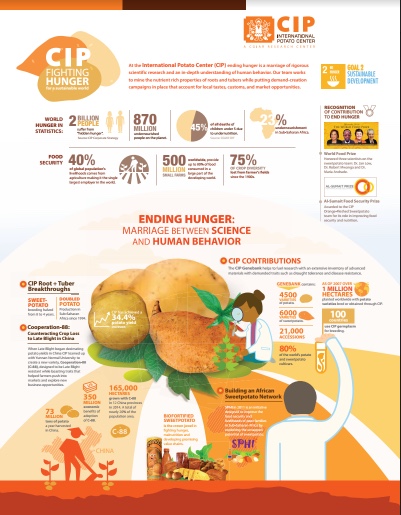SDG2
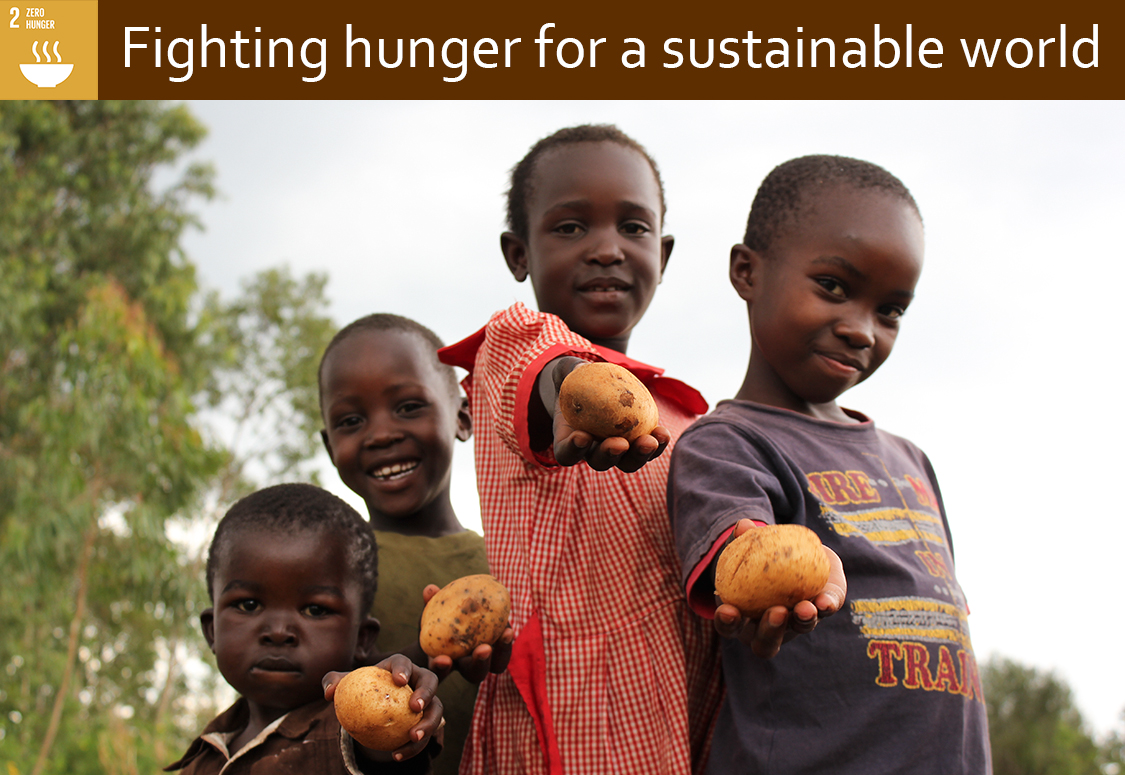
Mitigating and adapting to climate change with roots, tubers and bananas
At the International Potato Center (CIP) ending hunger is a marriage of rigorous scientific research and an in-depth understanding of human behavior. Our team works to mine the nutrient rich properties of potato and sweetpotato, while understanding demand according to local tastes, customs, and market opportunities, in order to promote consumption of more nutritious food.
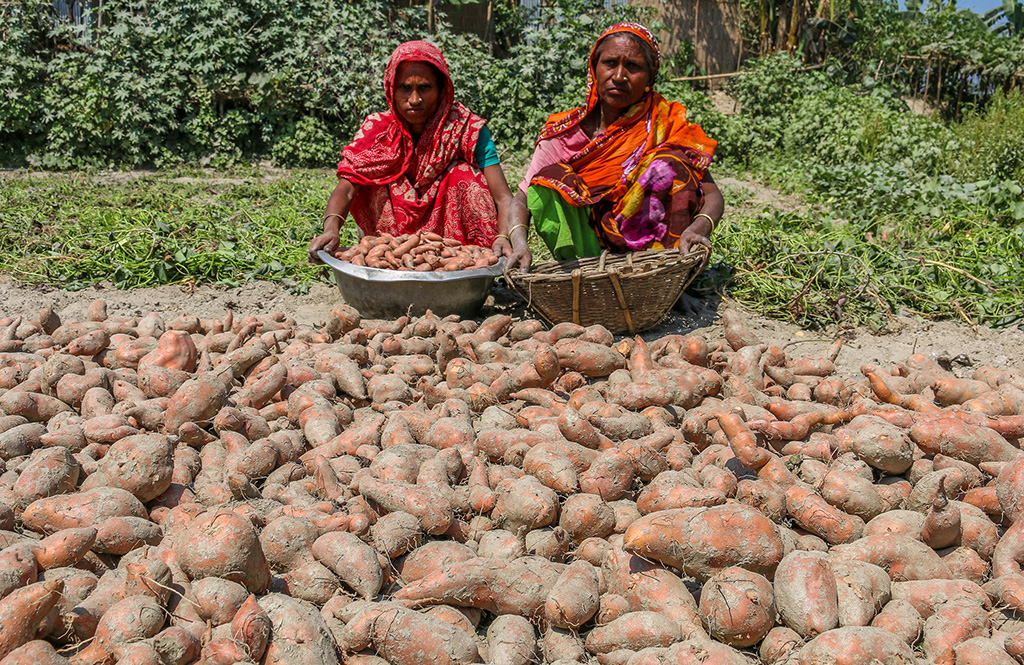
Building smallholder resilience, increasing food supply with improved varieties
CIP works to provide nutritious climate-smart varieties of potato and sweetpotato and empower smallholder farmers with the technologies they need for optimal crop yields. From creating seed systems that get a consistent supply of quality seeds and vines into the hands of the farmers that need them, to taking advantage of improved drought-tolerant and pest-resistant varieties, CIP is committed to helping end hunger and ensuring access to safe, nutritious food throughout the year.
Along Bangladesh’s sandy riverbanks, by cultivating biofortified orange-fleshed sweetpotato. Extreme conditions such as soil salinity, erosion and limited water supply make the fast growing drought tolerant OFSP a boon for local communities. Throughout the world, CIP endeavors to get farmers improved varieties uniquely adapted to local challenges and environments
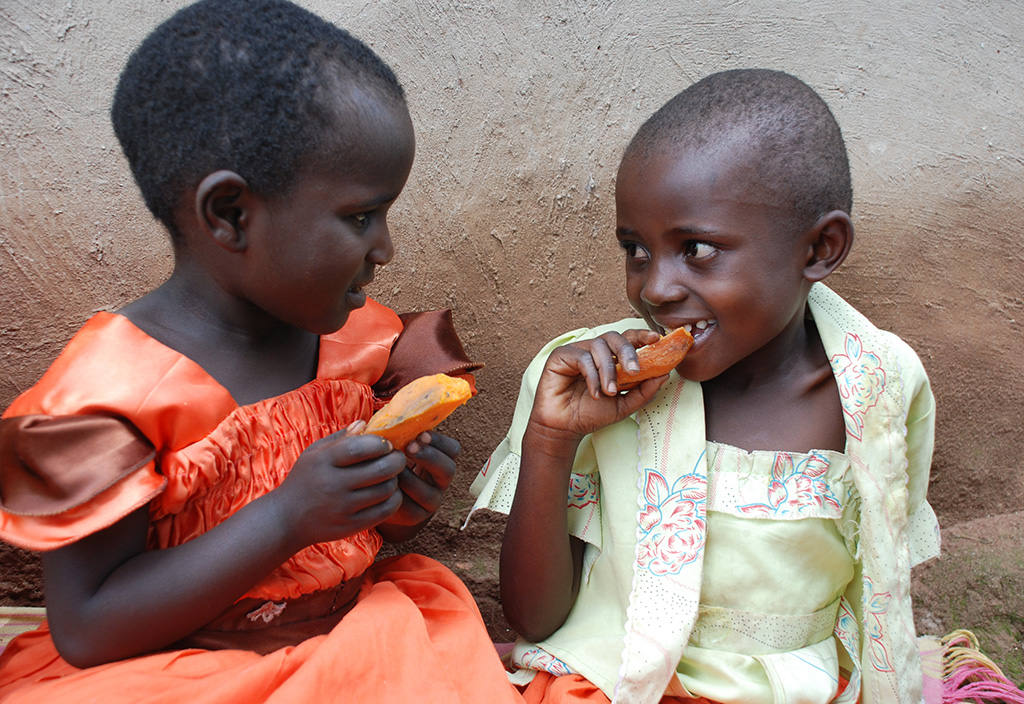
Counteracting hidden hunger with biofortified OFSP
Worldwide more than 2 billion people suffer from “hidden hunger.” Vitamin A deficiency (VAD) is one of the most pernicious forms of undernutrition leading to blindness, stunting – the impaired growth and development that children experience from poor nutrition – and early death. More than 163 million children under 5 and 7 million pregnant women are afflicted with VAD globally. A mere 125 grams of biofortified orange-fleshed sweetpotato supplies enough beta-carotene to meet the recommended daily vitamin A intake in young children.
CIP staff in Sub-Saharan Africa have worked tirelessly to get people to make OFSP a staple at the family table. To date, OFSP has become firmly rooted in the daily diet in 14 countries and almost 2.9 million households. Three of CIP’s leading scientists, Dr. Jan Low, Dr. Robert Mwanga, and Dr. Maria Andrade bolster food security through OFSP and have received the World Food Prize in recognition of their work.
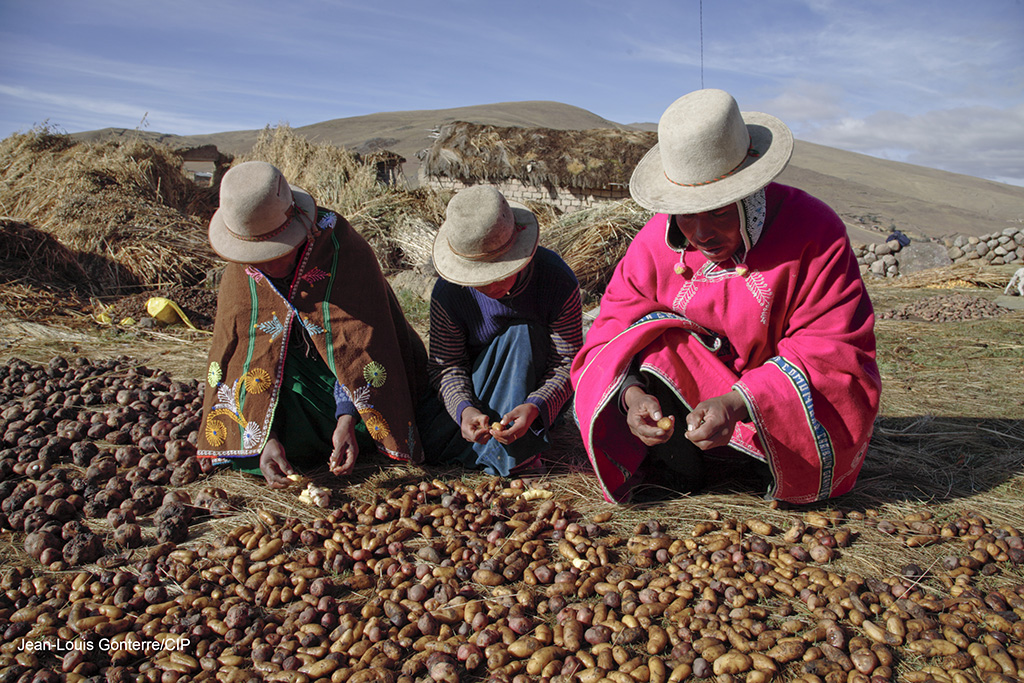
More food and income through improved varieties, access to clean seed
Smallholder farmers often face reduced yields as a result of degraded land, degenerated seeds, limited access to water, and lack of resources to purchase such inputs as fertilizer and insecticides. CIP works on several fronts to build farmer resilience and increase crop yields: developing improved varieties, creating viable seeds systems, training farmers in integrated pest management, and helping smallholders become active participants in local sweetpotato and potato value chains.
By 2023, CIP and partners aim at reaching at least 15 million households to improve the quality of their diets and crop incomes in Africa, Asia, and Haiti through OFSP. Ethiopian farmers are already seeing the benefits of CIP’s commitment to getting 600,000 farmers in Africa to increase potato yields by 50 percent in ten years time by tackling deteriorated seed quality through an integrated approach. While in Asia CIP will reach 7 million farmers with early-maturing potatoes, and cropping system diversification and intensification. Integral to this work is CIP’s commitment to empowering female farmers and working to get them the tools and access they need to build their incomes and increase the overall nutrition of their families.
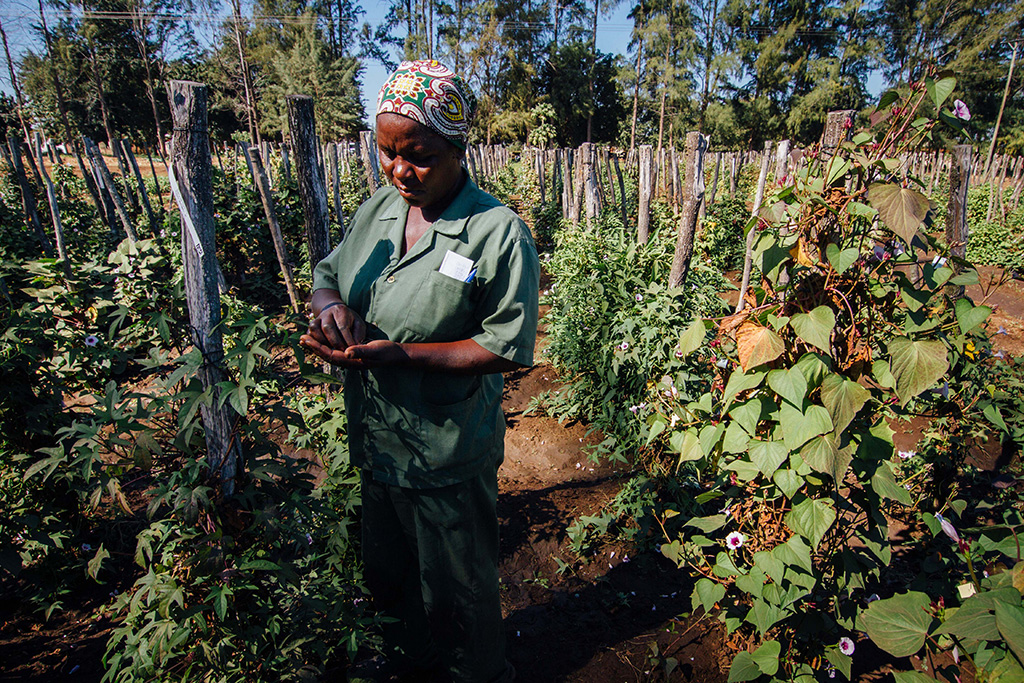
Built-in sustainability through seed system strengthening
Sustainable food production often starts with access to quality seeds. Sweetpotato farmers routinely re-cycle sweetpotato vines from season to season while potato farmers usually plant small seed tubers that are left over from previous harvests. Over time disease accumulates leading to significant reduction in crop yields. Plant breeders work tirelessly to develop new varieties adapted to local climatic conditions, taste preferences, and environments. Work that could prove fruitless if no improved seed system is in place to get the new varieties into the hands of the farmers that need them.
CIP works to create effective delivery channels in tandem with developing new varieties with demanded traits. Across Sub-Saharan Africa, CIP and its partners are dedicated to establishing a network of farmers specialized as decentralized vine multipliers (DVMs) of OFSP who make quality vines accessible to a high number of rural farmers. DVMs are trained to manage their farms with technologies that maintain quality planting material and prevent disease transmission.
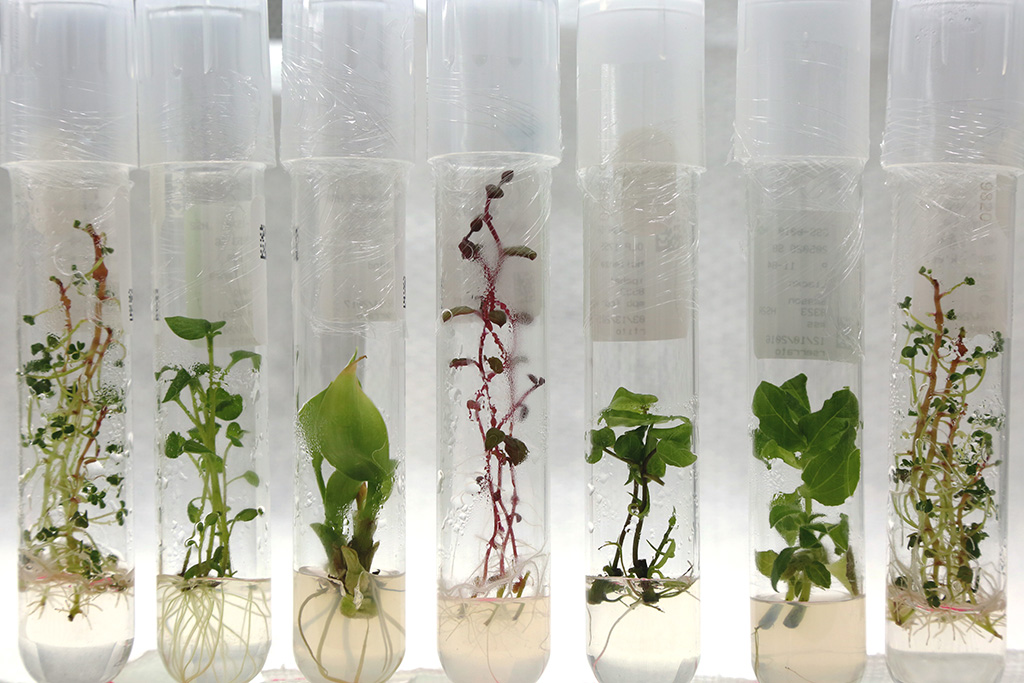
Preserving genetic diversity, fueling food security research for future generations
The CIP genebank helps to fuel research with an extensive inventory of native and advanced materials with sought after traits such as drought tolerance and disease resistance. As custodians of more than 21,700 potato, sweetpotato and Andean roots and tuber accessions, CIP ensures that the genetic resources that underpin our food supply are both secure in the long term and available for use by farmers, plant breeders, and researchers. Currently, 100 countries use CIP germplasm for breeding. As of 2014 almost 2 million hectares have been planted worldwide with potato varieties bred or obtained through CIP.
Download our infographic and find out more about how CIP is helping to achieve the UN Sustainable Development Goal of ending hunger worldwide.

